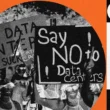An email from the Department of Homeland Security (DHS) has sparked considerable confusion after it instructed individuals on temporary legal status in the U.S. to leave the country "immediately." Surprisingly, the email was also received by a U.S. citizen—an immigration lawyer in Massachusetts—leading to questions about its intended recipients and the rationale behind such a drastic measure communicated via email.
The email stated that “DHS is now exercising its discretion to terminate your parole,” effective in “7 days from the date of this notice.” It closely resembles communications sent to users of CBP One, an app designed to assist non-citizens in scheduling appointments to seek asylum in the U.S. However, a spokesperson from U.S. Customs and Border Protection (CBP) clarified that the email was sent more broadly and not solely limited to CBP One users.
CBP’s assistant commissioner for public affairs, Hilton Beckham, confirmed the termination notices were issued for individuals without lawful status, but did not elucidate who these individuals might be or specify contingencies, leading to widespread apprehension among the immigrant community.
Nicole Micheroni, the immigration attorney who received the email, initially thought it could be misaddressed to one of her clients but soon realized it was specifically directed to her. Micheroni expressed her concerns, saying that while she didn’t expect deportation, the lack of clarity and care in the process was alarming, especially for those less knowledgeable about immigration law.
The email’s timing coincided with a federal court ruling that blocked efforts to revoke legal status for many immigrants under the same humanitarian parole program. This legal backdrop complicates the actions outlined in the email and further adds to the uncertainty for its recipients.
Attorney Lauren Regan from the Civil Liberties Defense Center highlighted that many immigrants may not understand the nuances of immigration law and could perceive the email as a legitimate threat, especially considering the current climate of fear and insecurity surrounding immigration policies.
Moreover, the format of the email raised eyebrows, as such communications typically occur through certified mail or in person, not casually via email. As many immigrants may lack stable email access, this could further alienate those who might need to respond to such notices.
Overall, even U.S. citizens feel the strain of aggressive immigration policies, with those like Micheroni receiving panicked communications from concerned family and friends. The uncertainty surrounding the email and broader immigration status adds to the already tense atmosphere, particularly for those directly affected.











